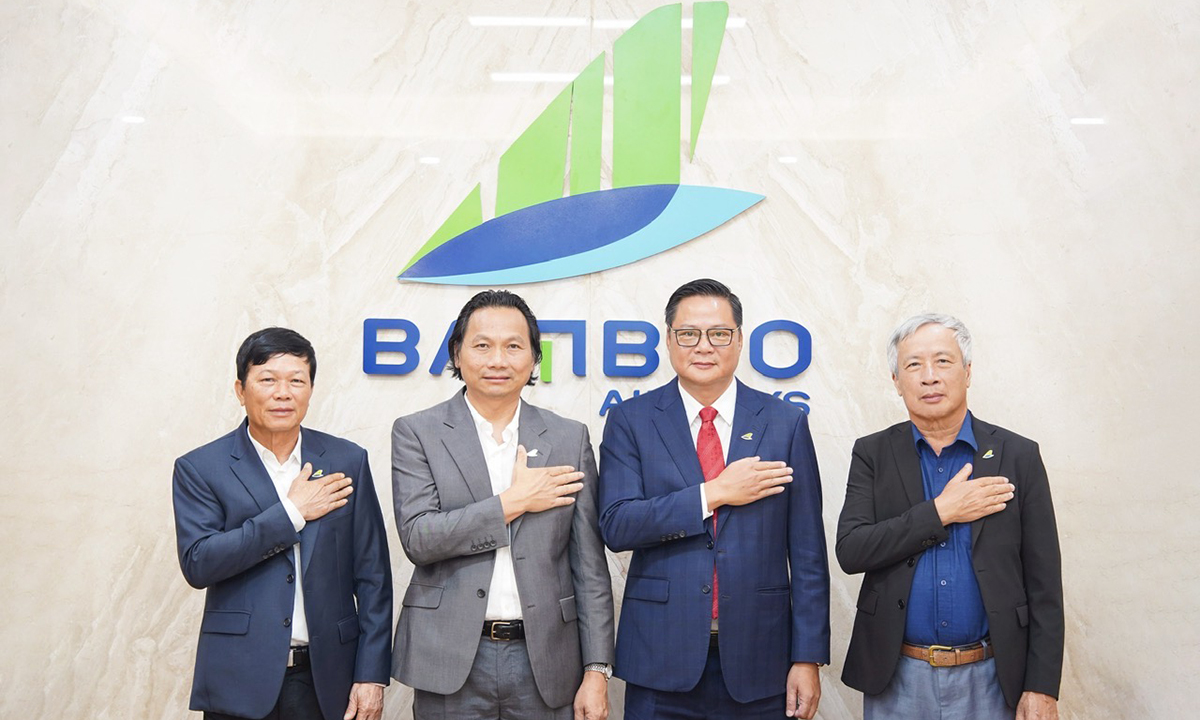The airline announced this 4 days after a successful extraordinary meeting regarding personnel matters. On 5/7, the company's shareholders' meeting dismissed two board members and elected Pham Ngoc Vinh and Vuong Cong Duc to the board.
Following the first meeting of the new board, Pham Ngoc Vinh was elected chairman.
Born in 1970, Vinh has over 25 years of experience in investment and real estate, holding senior leadership positions at various companies. He previously served as an advisor to Bamboo Airways' board.
The board of directors for the 2023-2028 term now consists of 5 members: Chairman Pham Ngoc Vinh, Standing Vice Chairman Le Thai Sam, Vice Chairman Nguyen Ngoc Trong, and members Vuong Cong Duc and Le Ba Nguyen.
 |
4 members of Bamboo Airways' board of directors, including the new Chairman Pham Ngoc Vinh (second from the right). Photo: Bamboo Airways |
4 members of Bamboo Airways' board of directors, including the new Chairman Pham Ngoc Vinh (second from the right). Photo: Bamboo Airways
Bamboo Airways stated that completing the board's structure is a crucial step in its comprehensive restructuring process, enhancing management capacity, strengthening financial resources, and preparing for a new growth cycle.
At last week's meeting, CEO Luong Hoai Nam reported that since the restructuring plan began in November 2023, the airline has achieved over 80% of its goals regarding fleet restructuring, route network, personnel, and ground services. Last year, the airline operated over 17,000 safe flights with a load factor of approximately 85.5%.
Bamboo Airways' losses decreased significantly last year due to restructuring measures. According to Nam, the airline's operational situation has improved in the first half of this year. The airline is nearing its operational break-even point for 2025 as planned, paving the way for future profitability.
Bamboo Airways' leadership also stated that they have actively met and worked with numerous domestic and international financial partners and investors to secure additional financial resources for the next phase, but specific conditions are still under discussion.
Anh Tu












